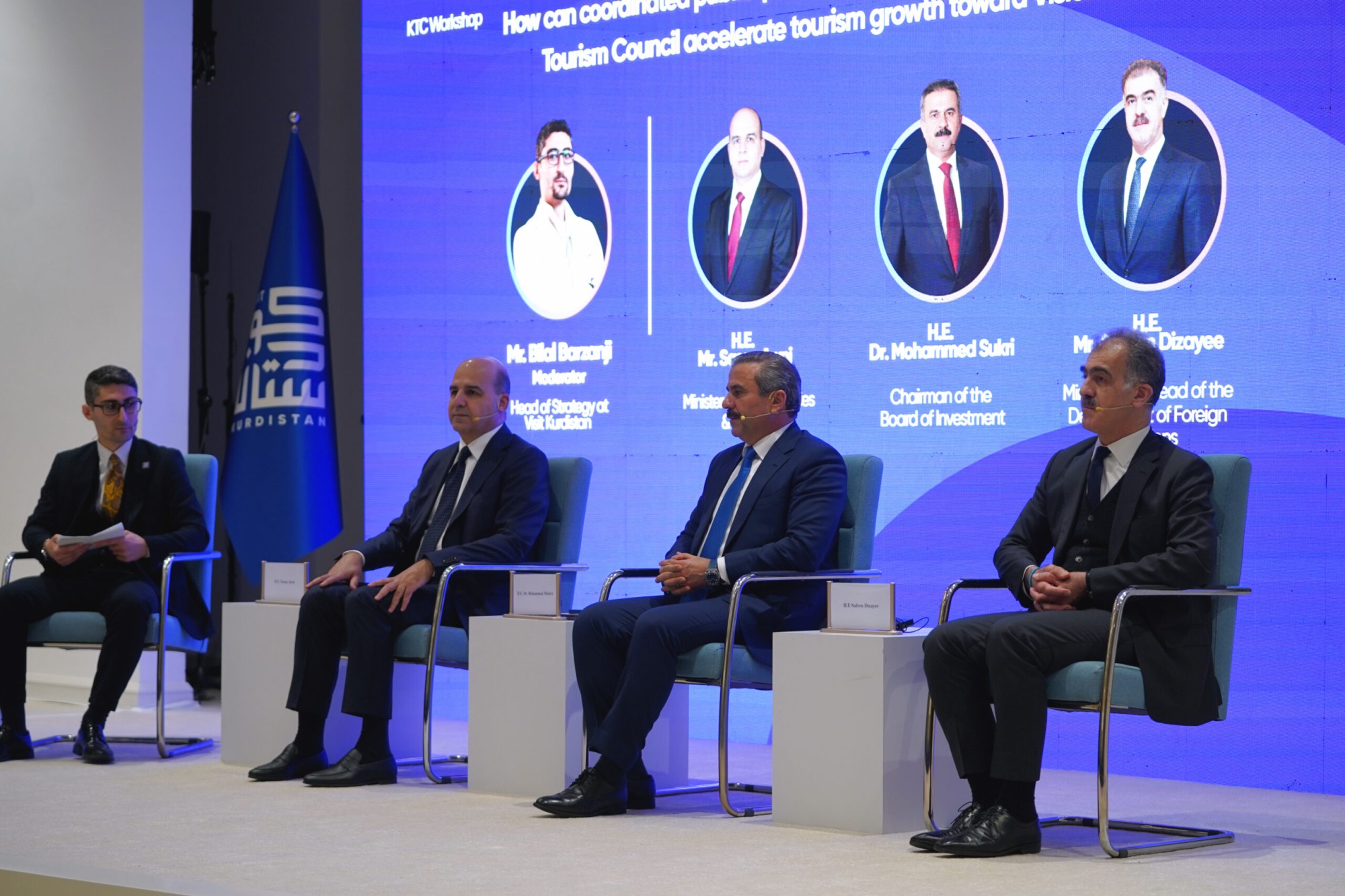On Thursday, May 22, the Al-Monitor Global Institute held a groundbreaking event in Washington, D.C., titled “The Future of Power and Energy in the Kurdistan Region of Iraq.” The conference attracted significant attention, featuring key figures such as Kurdistan Regional Government (KRG) Prime Minister Masrour Barzani and U.S. Secretary of Energy Chris Wright. Both leaders underscored the vital partnership between the Kurdistan Region and the United States, highlighting the region’s emerging role in the global energy sector.
The event included several informative panels, one of which was titled “Oil and Gas: The Kurdistan Region as an Energy Hub,” moderated by President of Al-Monitor Andrew Parasiliti. KRG Minister of Electricity and Acting Minister of Natural Resources Kamal Mohammad Salih emphasized that the Kurdistan Region has the capacity to export 400,000 barrels of oil daily, positioning itself for a significant increase in energy production and electricity generation.
During a broad discussion, Secretary Wright highlighted the Kurdistan Region’s potential to become a key player in regional energy development, aligning with U.S. energy and foreign policy goals. “We are eager to support the Kurdish people in transforming their natural resources into valuable assets,” he stated. He noted that while oil is essential for modern society, natural gas is the fastest-growing energy source globally and can dramatically improve quality of life.
Wright emphasized that the existing power infrastructure could enhance electricity production and delivery to the people of the Kurdistan Region and Iraq, aligning with U.S. President Donald Trump’s agenda to unleash energy dominance in the United States and among its allies abroad. He expressed excitement about these commercial developments and the potential to develop the region’s resources. “The Kurdistan Region has tremendous natural resources, and I see great opportunities for U.S. cooperation there,” Secretary Wright affirmed, emphasizing that these partnerships not only bolster economic growth, but also contribute to regional stability.
“We are very supportive of the policies of President Trump’s Administration and his decision in promoting peace, development, and prosperity in different parts of the world.”⁰⁰— Kurdistan Region Prime Minister Masrour Barzani. pic.twitter.com/F6V7WmE2WF
— Kurdistan Chronicle (@KrdChronicle) May 23, 2025
These remarks followed a statement by U.S. Secretary of State Marco Rubio, who highlighted Kurdish autonomy as key to U.S. strategy in Iraq. Earlier this week, the KRG signed two multi-billion-dollar agreements with HKN Energy and WesternZagros Resources, estimated to be worth a combined $110 billion. These agreements involve HKN Energy operating the Miran Block, valued at approximately $40 billion, and WesternZagros managing the Topkhana-Kurdamir gas field, projected to generate around $70 billion.
In his speech, Prime Minister Barzani emphasized the importance of recent agreements and reaffirmed the KRG’s commitment to development, stating, “Kurdistan is not only effective in combating terrorism alongside our allies, but it is also ready to build and attract U.S. investors.” He expressed pride in the relationship with the United States and highlighted the eagerness to collaborate on building a brighter future that benefits both the Kurdish people and U.S. investors, ultimately creating a win-win situation for all. Barzani conveyed a strong sense of welcome and support during his visit to Washington.
When asked by the moderator about Secretary Rubio’s remarks, which highlighted Kurdish autonomy as the “linchpin” of U.S. policy toward Iraq, Prime Minister Barzani responded warmly: “We appreciate Secretary Rubio’s statement. It is significant to hear such support coming from the United States, which we consider our closest ally. We take pride in being allies and friends of the United States. Frankly, we fully support the policies of President Trump’s administration, particularly his efforts in promoting peace, development, and prosperity around the world.”

